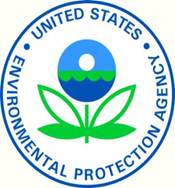The National Voluntary Laboratory Accreditation Program (NVLAP) provides third-party accreditation to testing and calibration laboratories that test bulk asbestos. The programs are established in response to Congressional mandates or administrative actions by the Federal Government or to requests from private-sector organizations and government agencies. Operating an accreditation system that is compliant with ISO/IEC 17011, which requires that the competence of applicant laboratories be assessed by the accreditation body against all of the requirements of ISO/IEC 17025.
CLIA 
Clinical Laboratory Improvement Amendments sets standards for all clinical laboratory testing to ensure the accuracy, reliability and timeliness of patient test results regardless of where the test was performed. The Center for Medicare & Medicaid Services (CMS) regulates all laboratory testing (except research) performed on humans in the U.S. through the CLIA.
EPA 
The Environmental Protection Agency is an agency of the federal government of the United States charged with protecting human health and the environment, by writing and enforcing regulations based on laws passed by Congress. Certified laboratories must successfully analyze proficiency testing samples annually, use approved methods, and successfully pass periodic on-site audits. EPA recommends that consumers use State certified laboratories for water testing.
ISO/IEC 17025 is the global quality standard for testing and calibration laboratories. It is the basis for accreditation from an accreditation body. There are two main clauses in ISO/IEC 17025 – Management Requirements and Technical Requirements. Management requirements are related to the operation and effectiveness of the quality management system within the laboratory. Technical requirements address the competence of staff; testing methodology; equipment and quality; and reporting of test and calibration results

